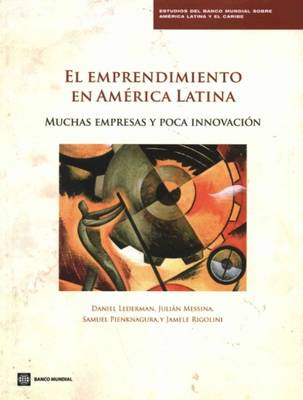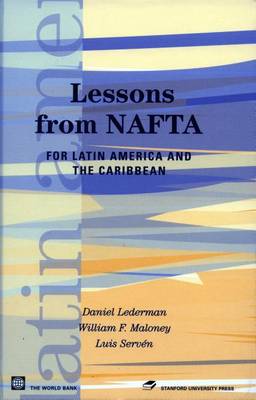Latin American Development Forum
5 total works
Does what economies export matter for development? If so, can industrial policies improve on the export basket generated by the market? This book approaches these questions from a variety of conceptual and policy viewpoints. Reviewing the theoretical arguments in favor of industrial policies, the authors first ask whether existing indicators allow policy makers to identify growth-promoting sectors with confidence. To this end, they assess, and ultimately cast doubt upon, the reliability of many popular indicators advocated by proponents of industrial policy. Second, and central to their critique, the authors document extraordinary differences in the performance of countries exporting seemingly identical products, be they natural resources or 'high-tech' goods. Further, they argue that globalization has so fragmented the production process that even talking about exported goods as opposed to tasks may be misleading. Reviewing evidence from history and from around the world, the authors conclude that policy makers should focus less on what is produced, and more on how it is produced. They analyze alternative approaches to picking winners but conclude by favoring 'horizontal-ish' policies--for instance, those that build human capital or foment innovation in existing and future products--that only incidentally favor some sectors over others.
El Emprendimiento en América Latina
by Daniel Lederman, Julian Messina, Samuel Pienknagura, and Jamele Rigolini
Published 30 September 2014
Entrepreneurship is a fundamental driver of growth, development, and job creation. While Latin America and the Caribbean has a wealth of entrepreneurs, firms in the region, compared to those in other regions, are small in size and less likely to grow or innovate. Productivity growth has remained lackluster for decades, including during the recent commodity boom. Enhancing the creation of good jobs and accelerating productivity growth in the region will require dynamic entrepreneurs. Latin American Entrepreneurs: Many Firms but Little Innovation studies the landscape of entrepreneurship in Latin America and the Caribbean. Utilizing new datasets that cover issues such as firm creation, firm dynamics, export decisions, and the behavior of multinational corporations, the book synthesizes the results of a comprehensive analysis of the status, prospects, and challenges of entrepreneurship in the region. Useful tools and information are provided to help policy makers and practitioners identify policy areas governments can explore to enhance innovation and encourage high-growth, transformational entrepreneurship. This is the Spanish edition.
Lessons from NAFTA
by Daniel Lederman, William F Maloney, and Luis Serven
Published 30 September 2004
Analyzing the experience of Mexico under the North American Free Trade Agreement (NAFTA), the authors draw lessons for other countries considering free trade agreements with the United States. The authors conclude that NAFTA raised external trade and foreign investment inflows and had a modest effect on Mexico's average income per person. It is likely that NAFTA also helped achieve a modest reduction in poverty and an improvement in job quality. However, major obstacles remain to Mexico's long term development-NAFTA is not enough. The main lesson for other countries is that free trade agreements offer opportunities to accelerate economic growth, but do not guarantee it.




